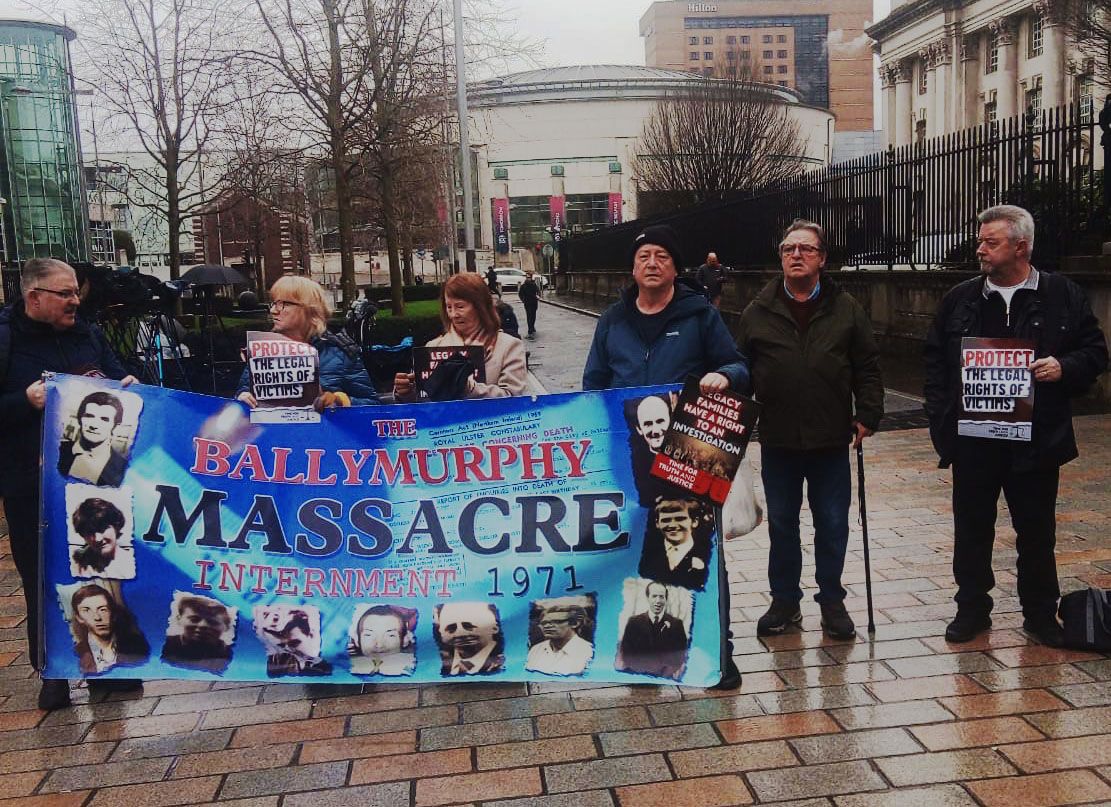VICTIMS' group Relatives for Justice say families have been "vindicated" after Belfast High Court ruled that the British government's controversial Legacy Act breaches the European Convention on Human Rights.
On Wednesday, Mr Justice Colton ruled provisions for conditional immunity from prosecution for Troubles offences in the Act are not compatible with human rights legislation.
The Legacy Act received royal assent in September, despite widespread opposition from every political party in Ireland, victims' organisations and the Irish government. Mr Justice Colton said there was no evidence the immunity provision would in any way contribute to reconciliation.
He said: "I am satisfied that the immunity from prosecution provisions under section 19 of the Act are in breach of the lead applicant's rights pursuant to Article 2 of the ECHR (European Convention on Human Rights). I am also satisfied they are in breach of Article 3 of the ECHR."
Mark Thompson, CEO of Relatives For Justice, said: "Today’s judgment is a vindication of the stance of families and the determination to assert their basic rights to due process and rule of law norms through independent investigations with full accountability.
"These are the basic rights of any functioning democracy, yet the British government are intent on denying families impacted by the conflict these fundamental rights.
"During four decades of conflict the UK authorities subverted the rule of law and due process, enabling systemic human rights violations to be perpetrated almost exclusively against one section of the community.
Families vindicated in High Court re Legacy Bill of Shame: "After detailed examination of amnesties in cases that came before the ECHR Grand Chamber, I find that the immunity provisions are in breach & incompatible with the ECHR in respect to Article 2 & 3"
— Relatives 4 Justice #NeverGivingUp (@RelsForJustice) February 28, 2024
"The Good Friday Agreement provided a new space, affording victims of that violence an agency to seek remedy and redress, tackling the de facto form of administrative impunity that had co-existed alongside the murders and inevitable vilification of their loved ones.
"This was a colonial policy and doctrine of British military general Frank Kitson that was refined, resourced and encouraged throughout the conflict in Ireland from MRF to the FRU and beyond.
"This amnesty legislation was a direct response to this new era of openness and transparency in which the ‘official state narratives’ were regularly being exposed as the lies they were. It was about halting historical clarification and truth.
"The Legacy Acy was deliberately designed to openly continue impunity to protect state perpetrators and agents from investigation and accountability – such as has been witnessed this week in the inquest into the murder of Sean Brown."






